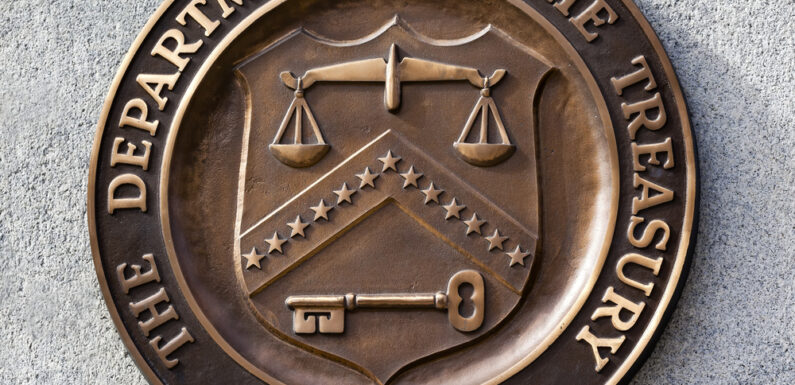
A U.S treasury official, Graham Steele has warned that policy makers in the country need to regulate crypto before the next financial crisis.
Steele, who is the Treasury’s Assistant Secretary for Financial Institutions spoke on Thursday, at an event hosted by George Washington University Law School.
“For crypto-assets, policymakers have a chance to act before a crisis to adopt higher standards that support responsible innovation,” Steele said. “At the same time, it is critical that any legislative proposals don’t undermine the already robust regulatory foundations that apply to financial institutions and capital markets.”
Steele outlined his time at the Treasury Department over the past two years overseeing cybersecurity, crypto, capital markets, among others.
U.S lawmakers have been working on a bill to properly regulate the crypto industry. The bill was first inspired by president Joe Biden’s executive order in 2022 “outlining the first ever, whole-of-government approach to addressing the risks and harnessing the potential benefits of digital assets and their underlying technology”.
Among other things, the executive order seeks to address concerns such as consumer protection, financial stability, climate risks and national security. Consequently, it directed the Treasury to write a report on crypto which called for regulators to monitor the sector for bad actors and issue guidance and rules.
“Our report noted that the U.S. generally has strong investor and consumer protection laws that address many of the risks posed by crypto-assets,” Steele said on Thursday. “Where existing laws and regulations apply, they have to be vigorously enforced so that crypto-assets and services — and the consumers who use them — are subject to the same protections and principles as other financial products and services.”
Crypto Use Cases
One of the major arguments against crypto is that crypto assets lack real world use cases. Steele touched on this in his speech on Thursday. While there are many use cases, Steele pointed out cross-border payments as the most promising.
“There are a number of prospective use cases that proponents hold out as the ways in which these products or services can be very beneficial,” Steele said. “Those include cross border payments, faster and lower cost settlement and immutable ledgers,” he added.
“Those feel like the areas, at least in our report, that we said were the most promising,” Steele said. “So it’s less about the crypto asset itself,” he continued
He however referred to some assets as purely speculative, citing an example with Dogecoin.
“It’s less about — I don’t even know if Dogecoin is still a thing or not, but it’s less about trading some of those things,” Steele said.
Ripple CEO Agrees with Steele
Meanwhile, Ripple CEO Brad Garlinghouse in Davos at the World Economic Forum referred to Ripple which is a company that facilitates cross-border payments as a typical use case for crypto.
He however admitted that there is speculation in the sector, just like Steele stated on Thursday.
“What we haven’t seen yet that I still think we will eventually see is a separation of wheat and chaff,” Garlinghouse said, including how technologies can be used to solve problems.
“I don’t get it,” Garlinghouse said. “Other than Elon Musk as the central actor, I don’t see the use case, the purpose,” he added, referring to Dogecoin.



